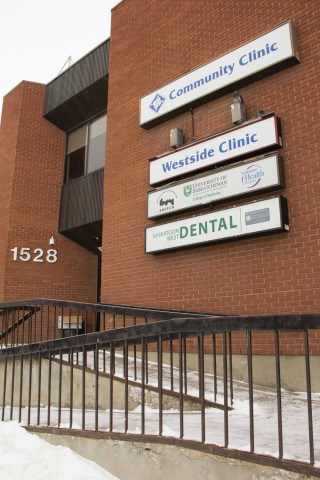 The University of Saskatchewan Students’ Union may soon impose an additional student fee to support entrepreneurship on campus.
The University of Saskatchewan Students’ Union may soon impose an additional student fee to support entrepreneurship on campus.
On Jan. 15, the University Students’ Council approved the formation of an ad hoc committee to discuss the possibility of a new student levy. The money collected by the levy would be used toward the creation of a fund to which student-run businesses and not-for-profits could apply for grants.
At the Jan. 29 students’ council meeting, Reed Gillanders from the Student Wellness Initiative Toward Community Health (SWITCH), a student-led community clinic, told council that SWITCH would be shortening its hours of operation due to a lack of money. USSU president Max FineDay said SWITCH’s financial situation was the original impetus for the creation of an ad hoc committee.
“We want to be able to do something,” said FineDay. “It’s not just about SWITCH, it’s about supporting students and their ideas and giving them an opportunity that they otherwise wouldn’t have.”
FineDay said the creation of this sort of fund is a necessary step if the U of S wants to remain competitive with other universities across Canada.
The levy would be “not unlike levies at other universities,” said FineDay. “The University of Toronto is number one in university start-ups because they invest in their students. We have to look at how the [U of S] can be more innovative for its students and start to play catch-up with the [U of T] and other schools.”
The next step for the ad hoc committee, composed of nine USSU councillors from different colleges, is to present its recommendations to students’ council at the Feb. 12 meeting. From this point, the council will decide whether they will hold a student referendum.
FineDay said it would be premature to hold a referendum this academic year and that more student consultation needs to occur first.
“From what I’ve heard, the report recommends that there won’t be a referendum and instead this should be looked at by next year’s council,” said FineDay. “We want to make sure if we’re doing this that we have enough time to talk to students before we go through the referendum process.”
Although it is not likely that council will vote to hold a referendum, FineDay said the eventual creation of an entrepreneurship fund would be beneficial to the U of S in the long run.
“We want the [U of S] to be innovative, we want to be able to support our students in their endeavours and advance community issues and build a better community,” said FineDay.
Since the levy would only affect members of the USSU, graduate students would not see an increase in their student fees. In terms of the amount of the levy, FineDay said that the expectation is for it to be relatively low — somewhere in the vicinity of $3.50 per year.
“Nobody’s talking about five dollars per term or anything like that.”
In the event that the referendum passes and a levy is created, student-run organizations would be able to request funding through an open application process.
“It’s good that council is talking about this, and I’d like to see the U of S supporting its students and advancing our community and innovation on and off campus,” said FineDay. “But if we hold a referendum, students should feel invested in it and that we’re moving in the right direction.”
FineDay stressed that the process is still “very preliminary.”
“There’s a lot of potential here if it’s done right,” FineDay said. “It’s going to take a lot of work.”
—
Photo: Katherine Fedoroff/Photo Editor